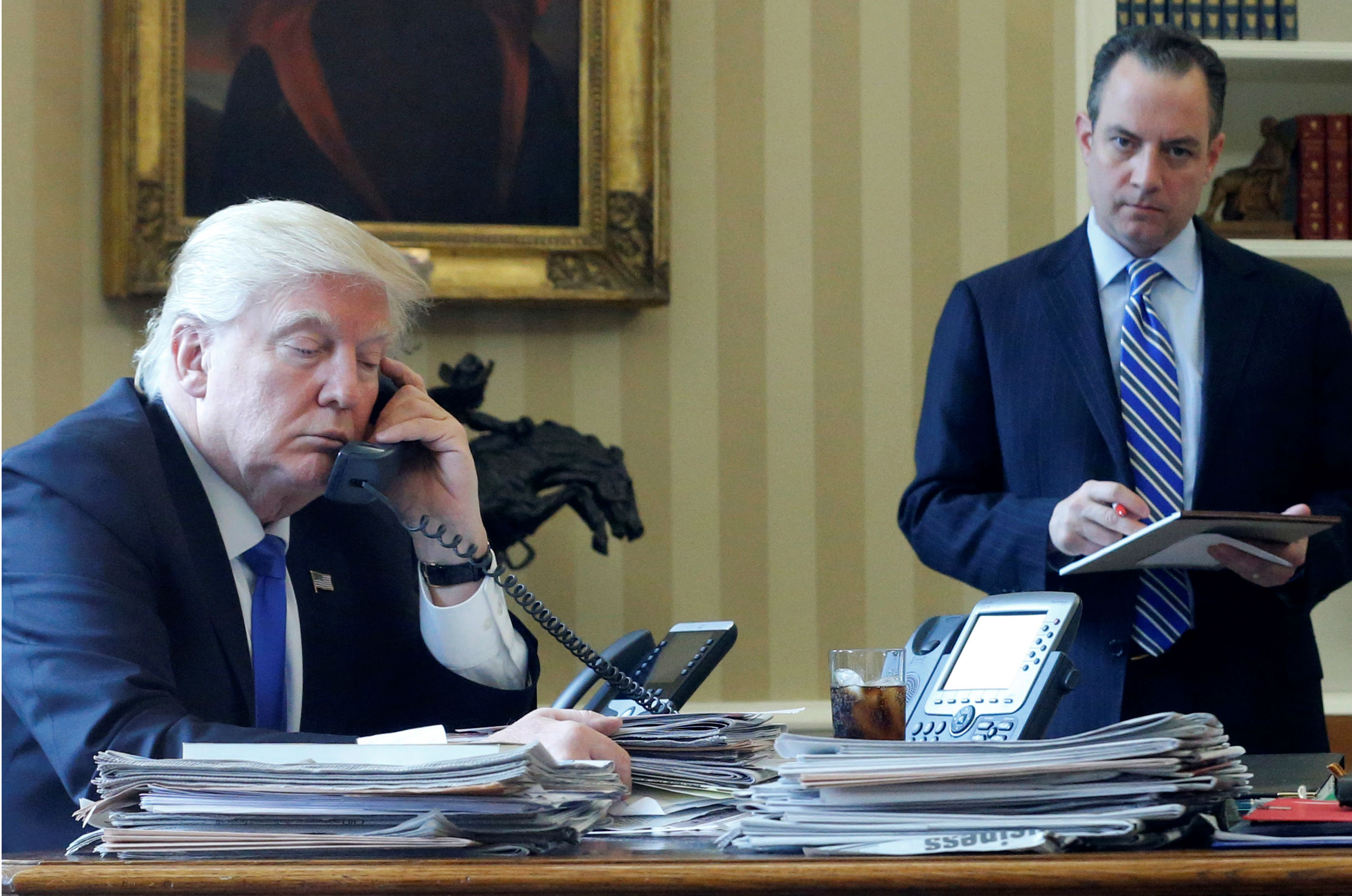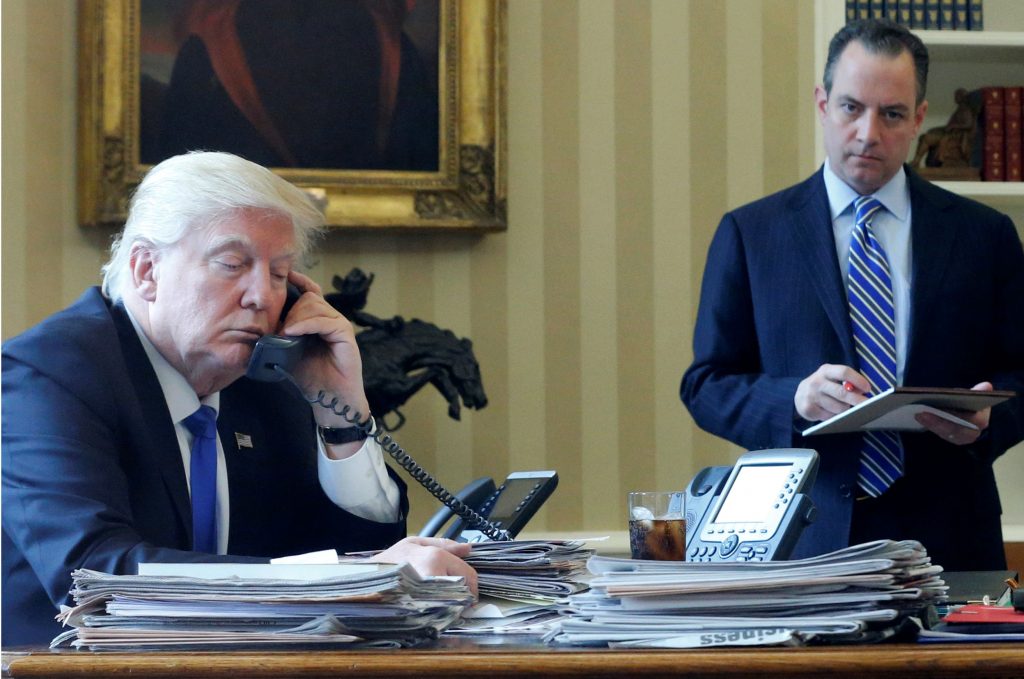 So far, US President Donald Trump’s Russia policy remains a mystery. Does he want to set in motion a US-Russia rapprochement? If so, sanctions against Russia may be increasingly difficult to sustain. The Trump administration might judge Ukraine’s security and territorial integrity to be a bothersome yet insufficient impediment to mending fences with Putin and, glossing over Russia’s annexation of Crimea and invasion of eastern Ukraine, reduce or even lift all sanctions and resume business as usual.
So far, US President Donald Trump’s Russia policy remains a mystery. Does he want to set in motion a US-Russia rapprochement? If so, sanctions against Russia may be increasingly difficult to sustain. The Trump administration might judge Ukraine’s security and territorial integrity to be a bothersome yet insufficient impediment to mending fences with Putin and, glossing over Russia’s annexation of Crimea and invasion of eastern Ukraine, reduce or even lift all sanctions and resume business as usual.
In that case, the Trump administration should be reminded that international politics is less like that of a billiard table of bilateral transactions and more like a spider’s web, where a tug at one end will rattle its farthest corners. The web in which Ukraine’s territorial integrity is entangled is the Treaty on the Non-Proliferation of Nuclear Weapons (NPT), one of the most widely adhered-to international treaties, which was designed to curb the spread of nuclear weapons around the world.
In 1994, Ukraine joined the NPT as a non-nuclear weapons state, a decision that entailed relinquishing its nuclear arsenal, the world’s third largest, to Russia. This laudable move was not unconditional: in return, the United States, Russia, and the United Kingdom, as the NPT’s depositary states, pledged commitments to Ukraine’s security through the Memorandum on Security Assurances, signed in Budapest on December 5, 1994. The Budapest Memorandum, as the document became known, provided pledges to Ukraine in the case of the use of force against its territorial integrity—precisely the kind of situation that occurred in Crimea in 2014.
The breach of the memorandum in 2014 by one of its signatories has been damaging enough. An unconditional reduction or even removal of sanctions in response to this breach by other signatories would render it utterly worthless and deal another devastating blow to the international nonproliferation regime of which the memorandum has become a constitutive part.
The Budapest Memorandum is admittedly imperfect. It is a diplomatic memorandum of understanding that merely recorded some political promises and is not a legally binding treaty, although Ukraine was reassured that Washington takes such pledges seriously. Nor does the memorandum contain any punitive provisions in the event of its breach. The parties merely agreed to hold consultations, if a particular situation raises a question about the signatories’ stated commitments. Its significance was not in providing any novel or particularly robust security guarantees, but in linking the fulfillment of these security commitments to Ukraine’s nuclear renunciation and accession to the NPT.
Russia’s belligerence in Ukraine has not only regional but also global repercussions because of the Budapest Memorandum; it undermines the international nuclear nonproliferation regime. The NPT is inherently discriminatory: it legitimizes nuclear possession for only five states, which happen to be the UN Security Council’s P5, and demands nuclear abstinence from the rest. The recognition of this exceptional status for five countries puts the onus on them to use this status responsibly and not simply for their own gain; to do otherwise would erode the legitimacy and logic of the bargain at the core of the NPT.
The nuclear five have already been coming under fire from a growing number of non-nuclear signatory states for their inadequate efforts to conduct nuclear disarmament, something the five countries had committed to under the treaty. Over the past decade, this frustration has snowballed into a movement to ban nuclear weapons in their entirety.
That a recognized NPT nuclear state would use military force to annex part of a neighboring non-nuclear state, while warding off Western assistance by brandishing its nuclear status, bodes ill for the international effort to curb the spread of nuclear around the world. Such actions make a mockery of the international regime that Ukraine acceded to on the conditions that such violations would not take place.
So far, the United States’ response to Russian belligerence has been largely in accordance with the political commitments it pledged to Ukraine in 1994. Washington convened consultations, as outlined in the memorandum, and unequivocally condemned Putin’s invasion of Ukraine. The Obama administration levied sanctions on Russia and delivered training and military aid to Ukraine, modest though it was. Former US officials responsible for negotiating the Budapest Memorandum, to be sure, advocated a still more robust military support than the Obama administration was prepared to provide and vocally supported the supply of lethal defensive arms to Ukraine. Still, thus far, the US more or less met its international obligations as a signatory of the Budapest Memorandum and a recognized nuclear power under the NPT.
If the White House now softens or even abandons its security commitments to Ukraine, this would send an ominous message to potential proliferators worldwide: the United States would effectively announce that great power assurances stand for nothing. The new Trump administration must keep in mind that one way to make (or keep) America great is for it to honor its commitments and remain on the right side in the ongoing struggle to prevent nuclear proliferation.
Andreas Umland is a senior research fellow at the Institute for Euro-Atlantic Cooperation in Kyiv, general editor of the book series “Soviet and Post-Soviet Politics and Society,” and consulting editor for the “Journal of Soviet and Post-Soviet Politics and Society,” both distributed outside Europe by Columbia University Press. Mariana Budjeryn is a Stanton Nuclear Security Fellow at the Harvard Kennedy School’s Belfer Center. Views expressed in this article are the authors’ own. An expanded version of this argument is forthcoming in an online edition of the Harvard International Review.
Image: US President Donald Trump, flanked by Chief of Staff Reince Priebus (R), speaks by phone with Russia's President Vladimir Putin in the Oval Office at the White House in Washington, US January 28, 2017. REUTERS/Jonathan Ernst
